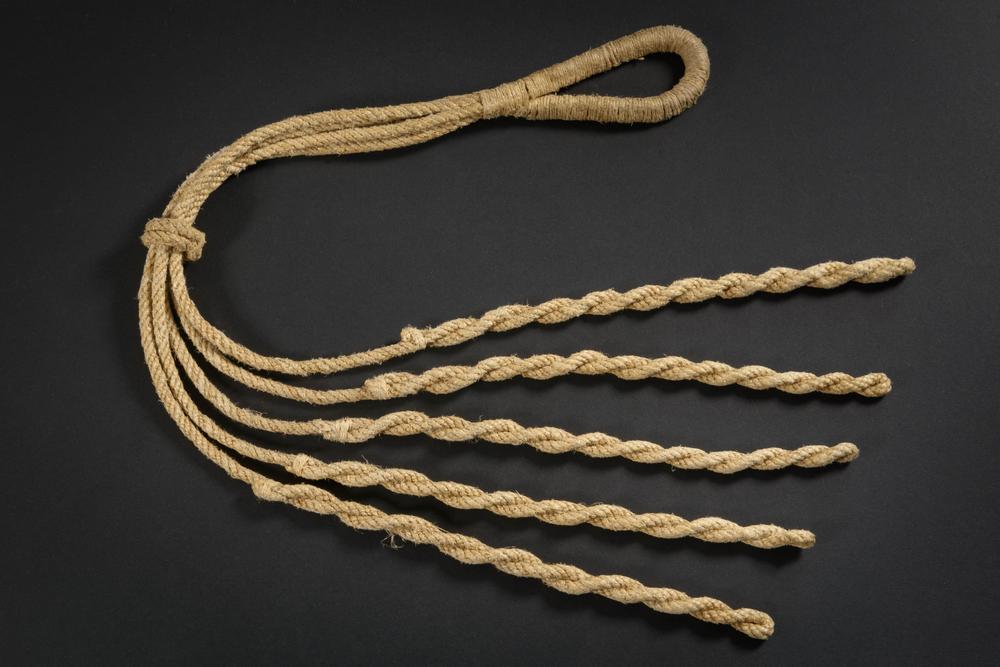MONASTIC PENITENTIAL SCOURGE WITH 5 KNOTTED CORDS
SOLD — This object is now part of a private collection
MONASTIC PENITENTIAL SCOURGE WITH 5 KNOTTED CORDS
Our prices are in euros, the prices converted in dollars or other currencies can vary according to the rate.
Free Worldwide Shipping – Secure and Protected Delivery
ref: #RK00-682Couldn't load pickup availability
This monastic penitential scourge, used in an ancient monastery, is an instrument of penance designed for self-flagellation, an ascetic practice aimed at purifying the soul through bodily suffering.
Made entirely of braided rope, it features a reinforced loop for a firm grip. Extending from this attachment are several thick strands, punctuated by strategically placed knots. These knots intensified the impact on the skin during use, making the scourge more painful without causing open wounds, unlike metal models.
Used by monks during prayer and meditation, this scourge was an instrument of humility and atonement for sins. Its soft material made it discreet, allowing for quiet use, often in the solitude of monastic cells, hidden from view.
The visible wear on the braiding testifies to repeated use, reflecting the rigor and endurance required by these practices. More flexible than iron scourges, it allowed for rhythmic and prolonged flagellation, extending both spiritual effort and bodily discipline.
Today, this object remains a poignant relic of austere monastic life. It illustrates a time when faith was expressed through physical hardship, where pain was embraced as a path to purification and spiritual elevation.
PERIOD : late 19th century
DIMENSIONS : 51 cm
SIZE : 20"
An instrument of penance known as a scourge, similar to a small whip, has been used by members of various Christian denominations, including Anglicans, Lutherans, and Roman Catholics, as part of the spiritual practice called mortification of the flesh.
Flagellation, an ancient practice associated with extreme forms of asceticism, has been employed by some religious figures to achieve spiritual purification and mortify their own flesh. This form of intense corporal discipline is considered a means of penance to atone for sins. Some believe that self-flagellation strengthens their connection with God and brings them closer to the suffering of Christ. However, it is important to note that this practice is not widespread across all religious traditions and often remains a controversial subject due to its extreme and marginal nature.



